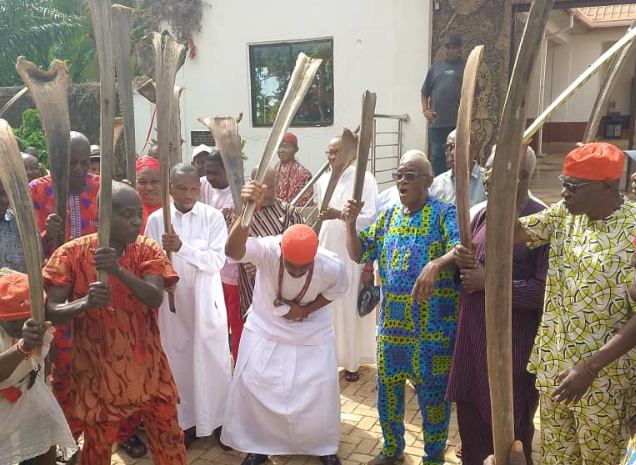BY CHIONYE HENCS ODIAKA
Kidnapping has become an endemic scourge in Nigeria, ravaging communities across the country and leaving families devastated. In many cases, even after ransom payments are made, loved ones are still murdered in cold blood. The tragedy has become a daily reality for countless Nigerians who live in constant fear of abduction and violence.
Despite repeated pleas to the government, security agencies have failed to effectively address this crisis. It is now evident to many that the Nigerian security apparatus lacks the capacity, coordination, or will to tackle the menace of kidnapping head-on. In response, local communities have begun to take matters into their own hands.
In the absence of effective state protection, many villages and towns have organised vigilante groups and forest guards to protect their people. These grassroots efforts have seen some success. However, some communities are going even further by turning back to ancient traditions once abandoned in the wake of modern religion and state governance.
Advertisement
A striking example is emerging from the Anioma region of Delta state, particularly in Ibusa, where traditional means of spiritual justice are being revived. The community has resolved to deploy a powerful indigenous curse through their local deity, an age-old practice believed to punish wrongdoers with deadly consequences. In these traditions, curses are invoked against those who commit grievous acts, especially crimes like kidnapping and murder. Once laid, these curses are believed to have the power to not only strike down individuals but, in some cases, wipe out entire families of offenders who show no remorse or make no attempt at restitution.
This form of spiritual justice is not new to Anioma and many communities in the south-east. Places like Ubulu-Uku in Aniocha South LGA of Delta are renowned for the potency of their deities. The town has long been a destination for individuals from across Nigeria and neighbouring countries seeking traditional redress after being wronged, particularly when conventional avenues fail.
The belief in the curse’s effectiveness has endured for generations, with many reported cases of death and family tragedies attributed to these spiritual interventions.
Advertisement
Although the influence of Christianity and modern laws led to a decline in the use of traditional curses, the resurgence of kidnappings and killings has pushed some communities to reconsider their stance. The failure of state institutions has created a vacuum that some now believe must be filled by time-tested indigenous methods.
Ibusa, another Anioma town in Delta State, is reportedly preparing a community-wide event to lay collective curses on kidnappers, their collaborators, and other criminals. The ceremony is expected to involve the full participation of community members, led by traditional heads and spiritual custodians of the land.
For many, this move signals a return to a time when fear of communal repercussions kept people in line. In those days, the threat of a deadly curse served as a powerful deterrent, instilling discipline and moral responsibility. Families ensured their members behaved ethically, fearing the disgrace and danger of inviting a curse upon the household.
While this development may raise ethical and legal questions, one thing is clear: communities are desperate. In the face of continued bloodshed and government inaction, they are turning to the only tools they believe can bring justice and restore order.
Advertisement
Whether these traditional practices will succeed in curbing the kidnapping epidemic remains to be seen. But they underscore the depth of the crisis and the lengths to which Nigerians are willing to go to protect themselves and their loved ones.
Chionye Hencs Odiaka, a humanitarian, emergency management professional, community advocate, writes from Delta state. He can be contacted via [email protected]
Views expressed by contributors are strictly personal and not of TheCable.










